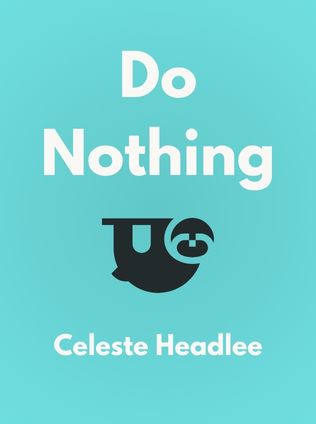
Do Nothing
Resisting the Attention Economy
By Celeste Headlee
Published 04/2019
About the Author
Celeste Headlee is a renowned journalist, speaker, and author with over two decades of experience in radio and public speaking. Known for her thought-provoking TED Talk, “10 Ways to Have a Better Conversation,” which went viral in 2015, Headlee has established herself as an influential voice on topics ranging from communication to productivity. Her previous books, We Need to Talk and Speaking of Race, have garnered widespread acclaim for their insights into effective communication and navigating difficult conversations. With Do Nothing, Headlee turns her attention to a pervasive issue in modern society—the obsession with productivity and the cost it exacts on our well-being.
Drawing from her personal experiences with burnout and her extensive research, Headlee provides a compelling argument for why we need to reevaluate our relationship with work. Her work is not just a critique but a guide toward a more balanced and fulfilling life, where leisure and human connection are valued just as much, if not more, than constant productivity.
Main Idea
The central theme of Do Nothing is the argument that our modern culture’s obsession with productivity is harmful to both our mental and physical health. Headlee asserts that the relentless drive to do more, achieve more, and be more is not only unsustainable but also counterproductive. The book advocates for a radical shift in how we approach work and life, encouraging us to embrace true leisure and prioritize meaningful connections over endless busyness. “By trying to do too much, people are working less efficiently because the human brain isn’t designed to multitask and work without rest” (Headlee).
- The historical roots of overworking
- The impact of modern work culture on health
- Strategies for living a healthier, more balanced life
Table of Contents
- The Historical Origins of Overworking
- The Modern Productivity-Obsessed Culture
- The Consequences of Overwork
- Strategies for Embracing Leisure and Connection
The Historical Origins of Overworking
To understand the roots of our current work culture, Headlee takes us back to the Industrial Revolution, a period marked by rapid technological advancements that drastically changed how people lived and worked. The proliferation of factories and the rise of wage labor meant that work hours became longer, and the nature of work became more monotonous. This shift was not just economic but also cultural. Headlee argues that the Protestant work ethic, which equated hard work with virtue, played a significant role in embedding the idea that more work equals better character. As she puts it, “People started working 10 to 14 hours per day on monotonous tasks. By contrast, medieval peasants worked a maximum of eight hours per day and took about a third of the year off” (Headlee).
The Enclosure Movement in Europe, which converted communal lands into private property, further exacerbated this shift. Many people were forced to move from rural areas to cities, losing their autonomy and becoming dependent on wage labor. This economic pressure was compounded by cultural narratives, particularly in America, where the idea of the “self-made man” and the American Dream began to take hold. This narrative suggested that anyone could achieve wealth and success if they worked hard enough, creating a relentless drive for productivity that persists today.
Sign up for FREE and get access to 1,400+ books summaries.
You May Also Like
The Subtle Art of Not Giving a F*ck
A Counterintuitive Approach to Living a Good Life
By Mark MansonRich Dad Poor Dad
What the Rich Teach Their Kids About Money - That the Poor and Middle Class Do Not!
By Robert T. KiyosakiHow To Win Friends and Influence People
The All-Time Classic Manual Of People Skills
By Dale CarnegieFreakonomics
A Rogue Economist Explores the Hidden Side of Everything
By Steven D. Levitt and Stephen J. Dubner



















